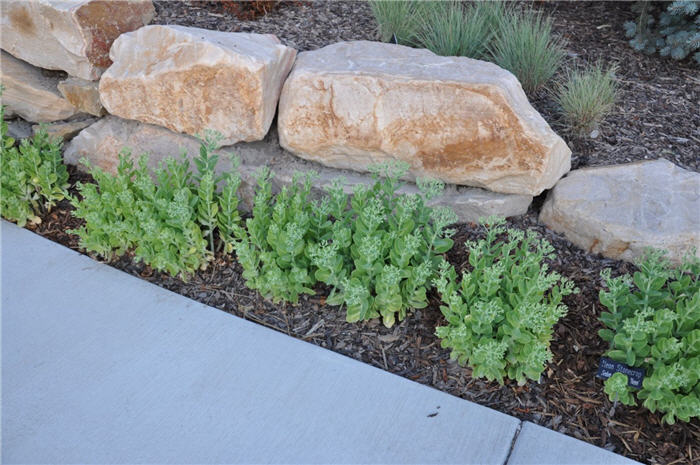| Botanical Name: Sedum spectabile 'Neon' | |
| Common Name: Neon Stonecrop |

-
Anatomy
-
Culture
-
Design
Plant Type
Ground cover, Perennial, Succulent
Height Range
1-3'
Flower Color
Pink
Flower Season
Summer, Fall
Leaf Color
Grey Green, Light Green
Bark Color
n/a
Fruit Color
n/a
Fruit Season
n/a
Sun
Full, Half
Water
Very Low, Low
Growth Rate
Fast
Soil Type
Sandy, Clay, Loam, Rocky, Unparticular
Soil Condition
Average, Poor, Well-drained, Dry
Soil pH
Neutral
Adverse Factors
Attracts Bees
Design Styles
English Cottage, Formal, Japanese, Mediterranean, Ranch, Spanish
Accenting Features
Showy Flowers
Seasonal Interest
Winter, Summer, Fall
Location Uses
Entry, Perennial Border, Patio, Raised Planter, Swimming Pool, Walls / Fences, With Rocks
Special Uses
Container, Mass Planting
Attracts Wildlife
Butterflies
Information by: Stephanie Duer
Photographer:
Photographer:
-
Description
-
Notes
This is a relative of Brilliant sedum. It was selected for its brighter pink flower and more dense habit. It grows about 1 to 2 feet tall and wide. Neon pink flowers put on a long show August to October. Bees and butterflies enjoy the flowers. The spent flowers and plant have great persistence going into the winter months, providing interest in the garden and seeds for birds.
As a group, sedums prefer well-drained soils, including sandy-loam, clay-loam, or rocky soils, as long as it is well drained. In nature, most sedums occur in light shade or partly sunny sites, while a few are also well-adapted to full sun situations. They can tolerate both drought conditions or more frequent watering, but the key is good drainage. Their xeric nature makes sedums popular for use in rock gardens, roof gardens, wall gardens, and living wreaths.